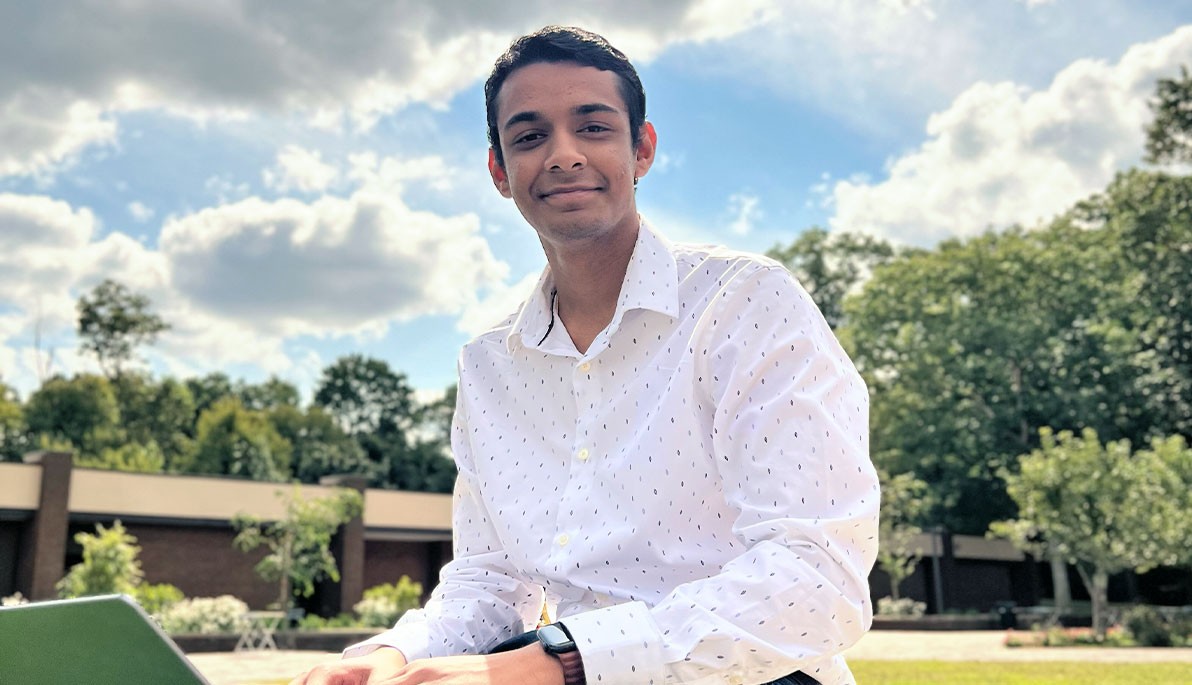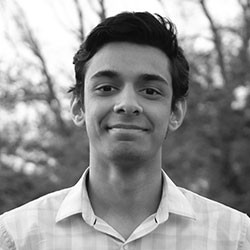
Student Profile: Pranaav Venkatasubramanian

Major: B.S., Computer Science
Year Expected to Graduate: 2026
Campus: Long Island
Hometown: Islip Terrace, N.Y.
Planning His Next Move
When Pranaav Venkatasubramanian has free time, he often plays chess online. In fact, he used to play competitively and has multiple wins to his name. If he’s not playing chess, he’s trying to beat his Rubik’s Cube solve record of 46 seconds.
An innate problem solver with a keenness for the mathematics and algorithms that make things work, it is not surprising that Venkatasubramanian is pursuing a bachelor’s degree in computer science.
“I always knew I would grow up to program things,” says the College of Engineering and Computing Sciences student, who frequently practices programming concepts he learned from the online education resource, Khan Academy. “As I pursue my degree, I love understanding how computers work and where and how the code I write gets processed through a computer.”
To gain hands-on practice with programming and other computer skills, Venkatasubramanian works in the Entrepreneurship and Technology and Innovation Center (ETIC), where, as project manager, he routinely contributes to the ETIC’s hallmark robotics project, the ETIC Research Robot for Student Engagement and Learning Activities (E.R.R.S.E.L.A.). He is responsible for scheduling and running educational sessions with E.R.R.S.E.L.A. to teach students across elementary, middle, and high school levels about the engineering and computer science process.
He also is working on a NASA patent project titled Portable Unit for Metabolic Analysis (PUMA). His part in the project involves using a Raspberry Pi 4B (a miniature computer) and connecting carbon dioxide, oxygen, and differential pressure sensors, as well as implementing PUMA’s user interface to show all measurements coming from the apparatus. PUMA may be used to detect hypoxia (insufficient oxygen in body tissue) in those working in high-stress occupations like astronauts, scuba divers, and miners.
He also recently worked with then-fellow computer science student Hibha Agha (B.S. ’23) on their entry, Xpress Assist, for the 2022–2023 NYSID CREATE Symposium (New York State Industries for the Disabled Cultivating Resources for Employment with Assistive TEchnology).
Looking ahead, Venkatasubramanian hopes to develop several different software programs to implement in the healthcare and robotics fields.
“I would like to create a software application to track disease outbreaks based on the cases reported and predict if a person has made contact with an infected person and show that real-time data,” he says. “In the ETIC, we are working on a drone project—I would also love to create a program for our drone that can calculate an efficient way to plant trees.”
After he receives his bachelor’s degree, Venkatasubramanian plans to balance an internship or part-time software development work with pursuing a master’s degree. He is debating a choice to pursue an M.B.A. or a master’s in computer science, based on whether he creates his own financial tech company or works as a software engineer for a major company like Google, IBM, or Apple.
“Don’t be afraid to explore your options and ask questions. And put yourself out there,” he advises others studying engineering and computing-related fields. “Joining the ETIC has greatly expanded my programming skills, and Professor Michael Nizich has helped me understand the business side of every project I’ve worked on.”









